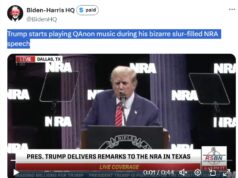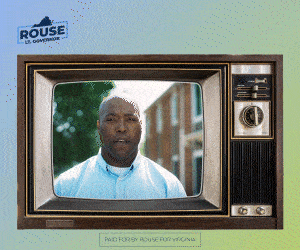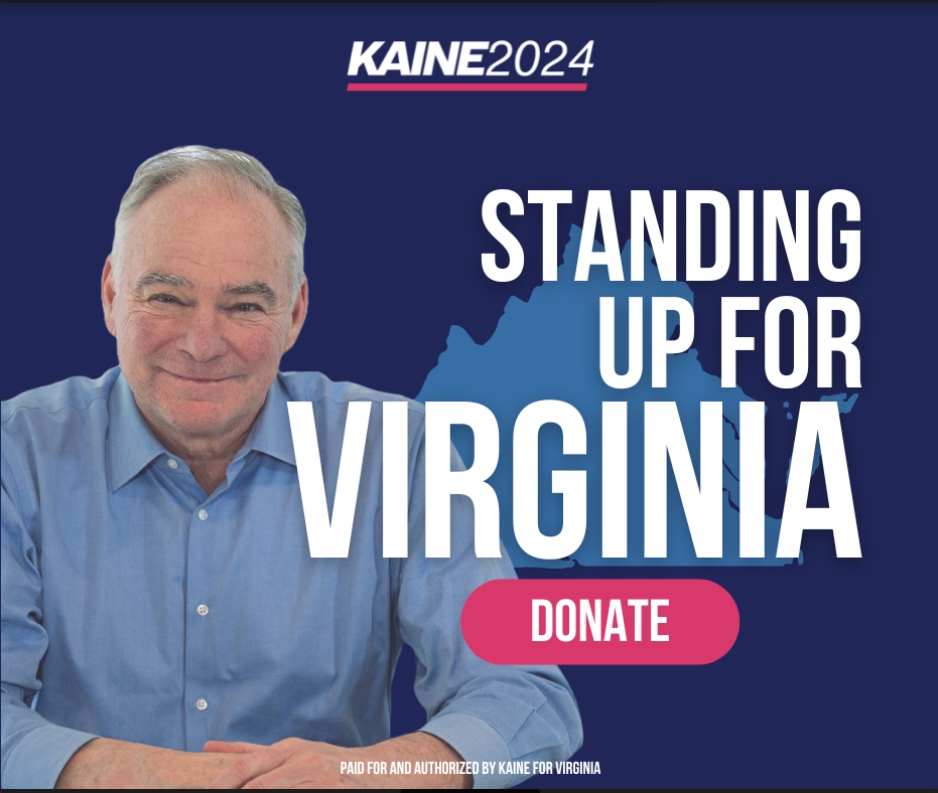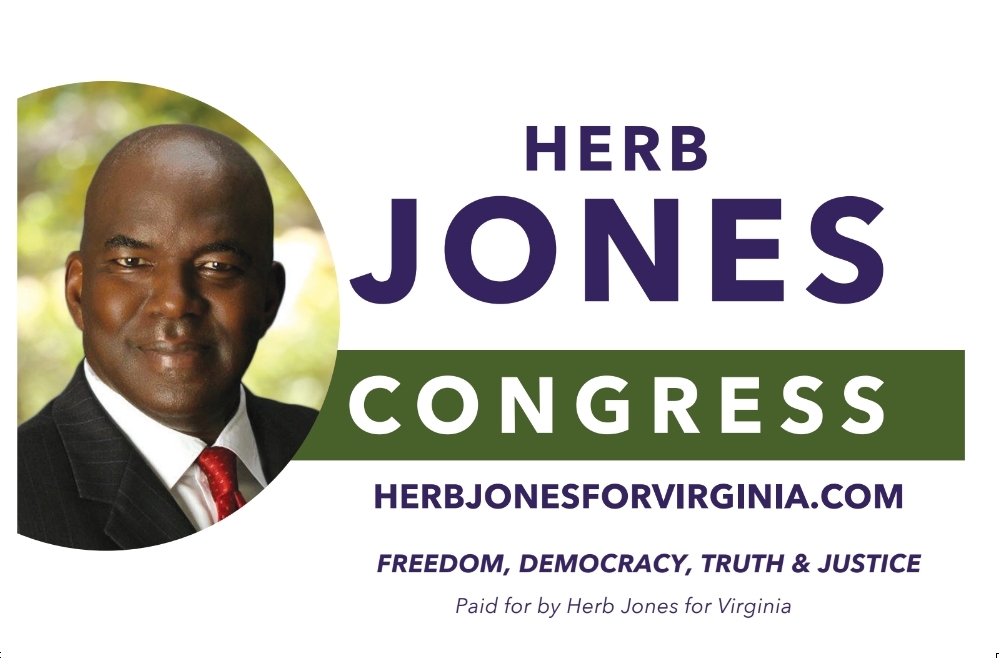by Sam Shirazi
Discussing the electoral implications in Virginia of the conflict in Gaza seems trivial given the life-and-death situation on the ground. At the same time, understanding the domestic political ramifications of the conflict is important because of the relationship between Israel and the U.S.
To get a sense of how the issue is playing out, we can look at three Democratic primaries in the Northern Virginia U.S. House seats of VA-7, VA-10, and VA-11. Despite strong feelings on Gaza within parts of the Democratic base, that has not always translated into significant impact on these primaries.
In general, the Democratic candidates agree on almost every other major issue, such as abortion, gun safety, Ukraine, etc. The one issue where there are some differences and potential places to see debate is over Gaza.
But most candidates rarely talk about the issue unless directly asked. Even then, they do not usually use it as an issue to distinguish themselves from other candidates. The majority of the candidates do not even discuss the issue on their website, showing most do not see it as a defining issue for them. Given this backdrop, it’s not surprising that Gaza is unlikely to decide any of these primaries.
VA-10
Gaza has perhaps the most importance in VA-10, where incumbent Rep. Jennifer Wexton unfortunately had to retire due to health reasons. This district has a relatively sizable Muslim population with a concentration of voters around the Dulles area in Loudoun, with the county as a whole having more than 25,000 Muslims (out of a county population of about 440,000).
There was a notable protest vote against President Biden in several Loudoun precincts during the March Presidential primary. Overall, Biden got 82% in Loudoun despite getting 88.5% statewide, which was among his worst showing in any county or city in Virginia.
The primary has 12 Democrats and no clear frontrunner. In this environment, it would seem like Gaza might be a way for candidates to distinguish themselves, but it has rarely been a major issue on the campaign trail.
Former Virginia education Secretary Atif Qarni, who is Muslim, is the candidate who has raised the issue the most. He has called for an unconditional ceasefire and also spoken out against the arrests of protesters at college campuses. State Senator Jennifer Boysko has also been more outspoken about civilian causalities in Gaza. She called for a ceasefire as early as October 27, before most Democratic politicians.
On the other end of spectrum, former House of Delegates Speaker Eileen Filler-Corn and Delegate Dan Hemler, who are both Jewish, have been more supportive of Israel. Filler-Corn has gained the support of the PAC Democratic Majority for Israel. Helmer has also spoken about his family’s personal connection to Israel.
The other candidates in the race are State Senator Suhas Subramanyam, Delegate David Reid, Delegate Michelle Moldonado, Krystal Kaul, Travis Nembhard, Mark Leighton, Marion Devoe, and Adrian Pokharel. There are some nuances in their positions on the issue, but most generally have taken the middle ground.
Given differences between some of the candidates, one might expect this might be more of an issue for debate. While it has been raised, it seems like none of the candidates are willing to make this the single issue they focus on.
VA-7
In VA-7, there is another dynamic as there is more of a clear frontrunner in the Democratic primary to replace Rep. Abigail Spanberger, who is running for Governor. Eugene Vindman has a national profile and big fundraising advantage.
He’s facing off against five other candidates Delegate Brianna Sewell, former Delegate Elizabeth Guzman, Prince William County Supervisor Andrea Bailey, Prince William County Supervisor Margaret Angela Franklin, Carl Bedell, and Clifford Heinzer. Guzman draws the biggest ideological contrast with Vindman given she comes from the progressive wing of the party.
Vindman by comparison is more moderate and has expressed his support for Israel when attending the AIPAC Congressional summit. He also spoken about his experience coming to the U.S. as a Jewish immigrant and escaping the antisemitism of the Soviet Union.
Given divided opinions about AIPAC among Democrats, it seems this could be an area Vindman could be vulnerable. But neither Guzman nor the other candidates have been willing to go after Vindman on this issue, although Heinzer has expressed his opposition to continued Israeli military action in Gaza. Facing a divided field, Vindman has been able to avoid this issue becoming a lightning rod in the race.
VA-11
It is important to note that one incumbent Democrat is getting a primary challenger, largely based on this issue. Gerry Connolly has represented VA-11 since first winning in 2008 and has only faced a primary challenger in 2020, winning easily.
Ahsan Nasar is a lawyer challenging Connolly this year who comes from the growing Muslim-American community in the district. He has a prominent section on his website discussing the Israeli-Palestinian conflict.
Connolly for his part has voted to continue providing aid to Israel (as well as aid to the Palestinians in Gaza), even while his colleague Don Beyer in the neighboring VA-8 was one of a handful (37) of Democrats who voted no on that “supplemental.” At the same time, Connolly did call for a ceasefire in February, before President Biden and many other Democratic politicians; and Connolly was endorsed by Emgage Action (“National nonpartisan organization dedicated to turning out and empowering Muslim voters.”).
Ultimately, it is unlikely that Connolly is in much trouble given his long history and popularity in Fairfax County. But it is a reminder that all Democratic members of Congress have to navigate this issue right now.
Political Reality of Gaza in These Primaries
Despite VA-7, VA-10, and VA-11 being diverse districts, the reality is that the Congressional primary on June 18 will be older, whiter, and wealthier than the electorate in November. These primary voters seem more focused on domestic issues, as opposed to foreign policy. In “internal” Democratic campaigns’ polling, the top issues so far among VA10 Democratic voters appear to be: democracy/voting rights, reproductive freedom, gun violence prevention, healthcare, climate, and numerous others – education, transportation, data centers, etc., etc. – before it gets to foreign policy in general or Gaza specifically. Also, new polling of college students indicates that “only a sliver of students are participating [in protests against the war in Gaza] or view it as a top issue.” And a recent Quinnipiac University poll found that only 6% of Democrats view “international conflicts” as “the most urgent issue facing the country today,” compared to 33% who say “preserving democracy,” 16% “the economy,” 9% “abortion,” 8% “health care,” 8% “immigration,” 7% “climate change,” 6% “gun violence.”
So, while there is no doubt that there are some primary voters who have Gaza as their top issue, it otherwise ranks lower among top issues for likely Democratic primary voters, based on internal polling in VA-10 and other national polling. There is also the reality that the Democratic primary electorate is divided over the issue. Some are more sympathetic to Israel while others more sympathetic to the Palestinians. Many don’t want to take sides and simply want a resolution to the conflict.
In this environment, any statement will likely upset one part of the Democratic primary electorate. No matter how careful and nuanced a message, it will likely go too far for some and not far enough for others. That’s likely why we are seeing candidates focusing on different issues that unite and energize Democrats. Instead of something to distinguish themselves, Gaza is more of an issue to carefully navigate.
It might seem odd given the amount of attention paid to the issue, but it is what the polling indicates. So while the Gaza situation is certainly important and something that deserves attention, it is unlikely that it will decide any of these Democratic primaries in Virginia.


 Sign up for the Blue Virginia weekly newsletter
Sign up for the Blue Virginia weekly newsletter











